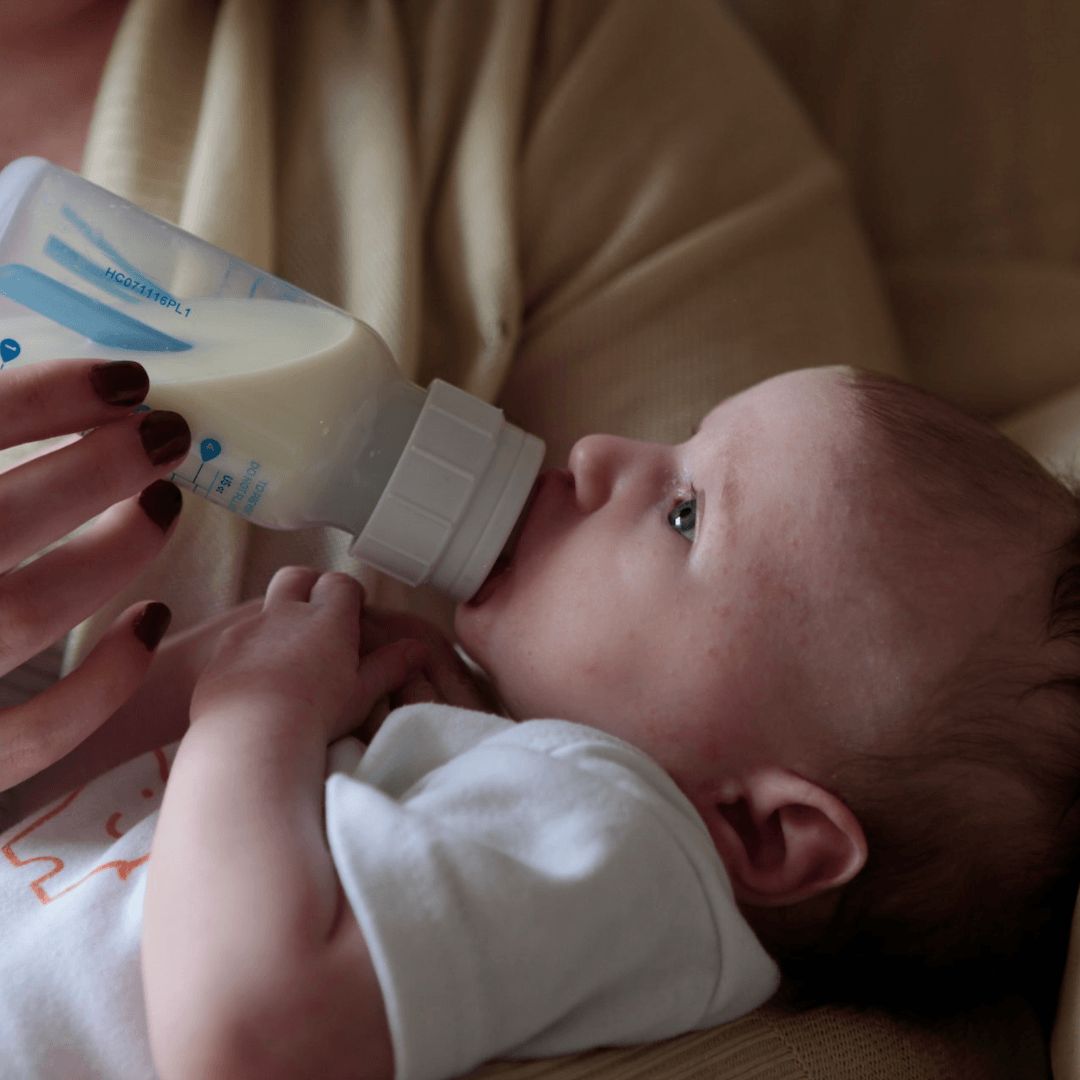Question of the Day
I gave formula milk to my 5-month-old baby. Until then, I was only breastfeeding. However, hives appeared on the body of my infant who drank the formula. It looks like an allergic reaction...Can formula also cause hives?
Answer
When your baby first took the formula, did they develop red hives all over their body? Infants with an immature digestive system may develop an allergy to formula. To be precise, it is the milk component in the formula that caused the allergy.
Allergies are caused by an overreaction of the immune system. Milk is not a harmful ingredient to our body, but the body can mistake milk for a bad ingredient and overreact, creating an allergic reaction. This is the reason why hives may appear on the body of children who try formula for the first time.
Because allergies have a large genetic component, it is helpful to think about the mother's and father's past symptoms and food allergies. Formulated milk sold in the market is made from milk protein as a main ingredient. So, if one or both of the parents is allergic to milk, your child might also have a milk allergy. If your child is allergic to milk, it can also cause a reaction to formula.
What are the symptoms of a milk allergy?
Example of Allergy Symptoms
- Exacerbation of atopic dermatitis.
- Skin rash, hives, etc.
- Itchy skin.
- Coughs, asthma, or allergic rhinitis occurs.
- Complaints of stomach pain.
- Vomiting.
- In more extreme cases, the airways and lips may swell, causing difficulty breathing.
A milk allergy is one of the most common ailments in babies. It is known that 2-5 out of 100 infants are allergic to milk protein. When your child consumes milk ingredients, the following symptoms may appear within minutes, hours, or days.
Even if the symptoms are usually mild, you never know when they will get worse, so make sure you consult a doctor if you have any concerns.
How do I deal with my child’s milk allergy?
The most popular way to treat a food allergy is to avoid the causative agent until the child is old enough to try substitute foods. Therefore, formulated and raw milk, as well as yoghurt and cheese, should be avoided.
Milk from other mammals such as donkeys, goats, and sheep is also not recommended. An allergy to the cow’s milk used in baby formula often means that your child will have a similar reaction to the milk of any animal. Fortunately, milk protein allergies tend to improve naturally as the child grows.
By the age of 4, 60% of children overcome the symptoms of milk allergy. By the age of 6, 80% of children are getting better. While waiting for your baby to grow, avoiding causative foods is of the utmost importance.
If you suspect a milk allergy, which formula should you use?
So, what should you feed a baby with a milk allergy? The best solution is to feed them breast milk. Because breast milk is not milk protein-based, it is less likely to cause allergies in your child. What if you are unable to breastfeed? All you have to do is choose a special formula for children with allergies.
Hydrolyzed milk powder (HA) is also a good alternative. Hydrolyzed milk powder is milk powder in which the problematic milk protein has been decomposed in advance. This will ensure that the milk protein is digested well in the baby’s intestines, which can prevent allergic reactions.
Hydrolyzed milk powder (HA) is divided into amino acid formula, fully hydrolyzed formula, and partially hydrolyzed formula. It is good to think of the amino acid formula as the most broken-down form, and the partially hydrolyzed formula as the least broken down form. Depending on your child's situation, you can choose the most suitable product.
What about soymilk powder?
If a child is allergic to milk, they might also have a soy allergy. About 30% of children that are allergic to milk are also allergic to soy. If your child is not experiencing soy allergy symptoms, it is okay to feed them soy formula.
Advice from Doctor Jeongho Seo, a Paediatrician
After a diagnosis of a milk allergy by a specialist, you should select a special formula.
Just because your baby develops hives doesn’t mean you should choose a special formula right away, because it could be a temporary symptom. If you are introducing your child to baby food at the same time, food other than formula may be the cause. If the skin symptoms or diarrhoea occur repeatedly, you can decide whether to change the formula after consulting with a paediatrician.
If your child has confirmed symptoms of milk powder allergy through blood tests, etc., you should feed them with fully hydrolyzed formula. HA powder may cause diarrhoea, and there are cases where babies find it difficult to eat for a long time because it is relatively tasteless. In this case, you may consider changing the type of milk to incompletely hydrolyzed or soy formula.
---------------------------------------------------
Author: Doctor Seo Jeong-ho
- Representative Director of 'Yonsei Hangyeol Pediatrics', Gangseo-gu, Seoul
- Paediatrics Specialist











